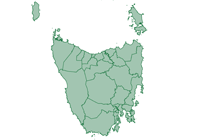Worker productivity by industry is calculated by dividing the industry value add by the number of persons employed in that industry. It shows which industries generate the most value add per employee. Some industry sectors, such as retail trade, are not highly productive per worker, but they employ a lot of people. Other industries, such as mining, employ fewer people but generate high levels of productivity. Each plays an important role in the economy.
Worker productivity data should be viewed in conjunction with Employment by industry (Total)and Employment by industry (FTE), to see the relative size of employment in each industry, and with Local workers income to see how many local workers are actually each in each industry, and with Sources of income data to see whether employment is the main way income is derived.
Detailed notes about how the figures are derived can be found in the specific topic notes section. National Economics (NIEIR) - Modelled series
Data source
National Economics (NIEIR) - Modelled series
Current area:
Current benchmark:
Comparison year:
Productivity measure:
| Productivity per worker (annual) by industry | |||||||||
|---|---|---|---|---|---|---|---|---|---|
| Burnie City - Constant prices | 2022/23 | 2017/18 | Change | ||||||
| Industry | $ | Tasmania$ | $ | Tasmania$ | 2017/18 - 2022/23 | ||||
| Agriculture, Forestry and Fishing | 340,827 | 230,003 | 311,768 | 232,794 | +29,059 | ||||
| Mining | 324,334 | 232,023 | 220,579 | 196,291 | +103,755 | ||||
| Manufacturing | 96,909 | 93,576 | 111,501 | 115,919 | -14,592 | ||||
| Electricity, Gas, Water and Waste Services | 154,918 | 167,521 | 169,677 | 204,864 | -14,759 | ||||
| Construction | 114,941 | 108,732 | 76,841 | 95,288 | +38,100 | ||||
| Wholesale Trade | 154,143 | 129,101 | 144,908 | 147,712 | +9,235 | ||||
| Retail Trade | 57,847 | 59,489 | 55,798 | 59,447 | +2,049 | ||||
| Accommodation and Food Services | 35,987 | 46,362 | 34,696 | 43,086 | +1,292 | ||||
| Transport, Postal and Warehousing | 161,024 | 136,413 | 152,033 | 126,221 | +8,991 | ||||
| Information Media and Telecommunications | 274,137 | 310,373 | 146,272 | 220,667 | +127,865 | ||||
| Financial and Insurance Services | 215,023 | 302,470 | 230,997 | 308,700 | -15,975 | ||||
| Rental, Hiring and Real Estate Services | 152,189 | 189,733 | 133,071 | 152,072 | +19,118 | ||||
| Professional, Scientific and Technical Services | 82,519 | 78,833 | 85,329 | 79,569 | -2,810 | ||||
| Administrative and Support Services | 116,624 | 100,681 | 102,562 | 83,391 | +14,063 | ||||
| Public Administration and Safety | 95,957 | 115,125 | 99,211 | 113,273 | -3,255 | ||||
| Education and Training | 74,217 | 78,295 | 81,368 | 87,576 | -7,150 | ||||
| Health Care and Social Assistance | 106,553 | 107,429 | 106,324 | 107,399 | +229 | ||||
| Arts and Recreation Services | 40,139 | 73,522 | 23,880 | 51,554 | +16,259 | ||||
| Other Services | 54,754 | 62,901 | 46,369 | 52,271 | +8,385 | ||||
| Total worker productivity | 114,858 | 111,667 | 106,045 | 109,609 | +8,814 | ||||
Source: National Institute of Economic and Industry Research (NIEIR) ©2024. ©2023. Compiled and presented in economy.id by .id (informed decisions). Data are based on a 2020-21 price base for all years. NIEIR-ID data are inflation adjusted each year to allow direct comparison, and annual data releases adjust previous years’ figures to a new base year.Learn more Please refer to specific data notes for more information | |||||||||


Dominant groups
An analysis of the jobs held by the full-time equivalent local workers in Burnie City in 2022/23 shows the three highest industries were:
- Agriculture, Forestry and Fishing ($340,827)
- Mining ($324,334)
- Information Media and Telecommunications ($274,137)
In comparison, the same 3 industries in Tasmania were for $230,003 in Agriculture, Forestry and Fishing; $232,023 in Mining and $310,373 in Information Media and Telecommunications.
The major differences between the jobs held by the full-time equivalent local workers of Burnie City and Tasmania were:
- A lower worker productivity in Rental, Hiring and Real Estate Services ($152,189 compared to $189,733)
- A lower worker productivity in Financial and Insurance Services ($215,023 compared to $302,470)
- A higher worker productivity in Mining ($324,334 compared to $232,023)
- A higher worker productivity in Agriculture, Forestry and Fishing ($340,827 compared to $230,003)
Emerging groups
The total worker productivity by industry in Burnie City increased by $8,814 between 2017/18 and 2022/23.
The largest changes in worker productivity by industries between 2017/18 and 2022/23 in Burnie City were for those employed in:
- Information Media and Telecommunications (+$127,865)
- Mining (+$103,755)
- Construction (+$38,100)
- Agriculture, Forestry and Fishing (+$29,059)
